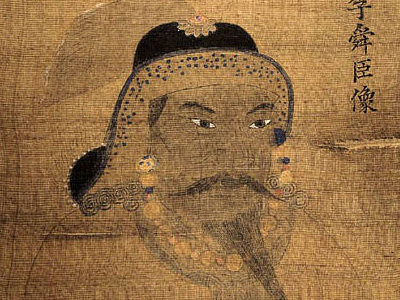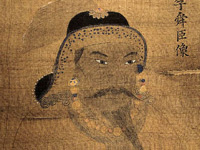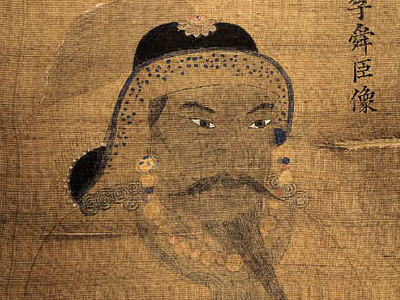Yi Sun-Shin 이순신 (1545-1598)

Joseon defeat at Chilchonryang and reinstatement of Admiral Yi
With Yi stripped of influence and negotiations breaking down in 1596, Hideyoshi again ordered an attack on Joseon. The second Japanese invasion landed in the first month of 1597 with a force of 140,000 men transported on 1000 ships. In response, Ming China sent thousands of reinforcements to aid Joseon. With the help of the Ming, the Joseon army was able to halt the Japanese offensive and push it back during the winter of 1597, before the Japanese were able to reach the Joseon capitol of Hanseong.
On the high seas, Yi's successor Won Gyun failed to respond to reports from his scouts and allowed the Japanese to land critical reinforcements at Sosang Harbor for their land offensive unopposed. Without adequate reconnaissance or planning, Won Gyun decided to attack with the entire naval force of Joseon at his disposal; a fleet consisting of 150 warships operated by 30,000 men that had been carefully assembled and trained by Admiral Yi. Won Gyun left anchor at Yeosu with the fleet and sailed into waters marked by treacherous rocks where the Japanese ambushed the Joseon fleet in the Battle of Chilchonryang on August 28, 1597. Ignorant of the strength and disposition of the enemy, Won was stunned to find a Japanese fleet of 500 to 1000 ships which immediately closed for melee combat, denying the Joseon ships the advantages of superior seamanship and cannon fire. The exhausted Joseon sailors were reduced to fighting boarding actions while heavily outnumbered and slaughtered en masse.
The Joseon fleet was decimated with only 13 warships surviving under Admiral Bae Seol, who fled before battle was fully engaged to save the warships under his command. After the destruction of the Joseon fleet, Won Gyun and Yi Eok-gi, another Joseon commander, fled to an island with a band of survivors but were killed by waiting Japanese soldiers from the nearby fort. The Battle of Chilchonryang was the only naval victory for the Japanese during the war against Joseon. When King Seonjo and the royal court learned of the catastrophic defeat, they hurriedly pardoned and reinstated Admiral Yi as commander of the greatly reduced Joseon fleet.
HISTORY

RESOURCES
This article uses material from the Wikipedia article "Yi Sun-Shin", which is released under the Creative Commons Attribution-Share-Alike License 3.0.
© Stories Preschool. All Rights Reserved.










